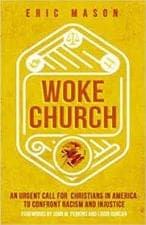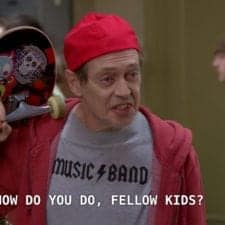The third chapter of Woke Church is really quite good, and therein lies a tale.

I want to commend Eric Mason in this, and for two things. First, in my interaction a few years ago with Thabiti, I pressed the point that Scripture really does contain more than a few angular texts when it comes to issues like slavery. People who profess to believe in the inerrancy of Scripture need to deal with this fact, and not just wave their hands over the problem. Thabiti acknowledged that fact but didn’t really delve into the issues in any satisfactory way.
Eric Mason does interact with the text in this chapter, and—this being my second point—he deals with Philemon and Onesimus in a very capable and exegetically responsible way. In fact, his treatment of the Philemon as slave owner and Onesimus as runaway slave is much the same as how I dealt with it years ago, about which more in a minute.
This presents us with what some might consider as a problem that should be numbered among other conundra. How can I be a racist for saying something about Philemon and Onesimus and Eric Mason be woke for saying the same thing about him? It is a mystery, my son.
What follows is a small string of quotations from this chapter of Mason’s, followed by a link to my treatment of Philemon and Onesimus.
“Philemon was a slave owner, and the church met in his home. For the church to meet in someone’s house meant that they were a big deal. A total baller. They had a middle courtyard that was open and they would have gatherings there. They likely had slaves serving at the gatherings” (Loc. 811).
“Paul had specific instructions for both of these men that are [a] powerful help to us as we ponder how to start acting like family” (Loc. 829).
“And because in this family God is the Father, I choose to obey. Onesimus did that. He willed himself to return to Philemon in obedience to Paul’s instructions” (Loc. 836).
“Paul is saying three things to Philemon: 1) don’t beat Onesimus when he comes back; 2) treat him like your family; and 3) commission him as a missionary and send him back to me” (Loc. 845).
“Paul is calling on Philemon—in front of everybody—to exalt Onesimus, his former slave, as a spiritual sibling and co-laborer in the gospel!” (Loc. 852)
“Now, that’s how you change a system. You change a system by converting the poor and the elite at the same time” (Loc. 860).
Allow me to extend the most cordial of invitations to all who are interested in the truth. Please read through this third chapter of Mason’s, and then follow this link and read what I have written on the book of Philemon. The only possible conclusion for the fair-minded is that I am being kept at arm’s length, not because the cool kids want to distance themselves from racism, but rather because they don’t want to distance themselves from their own form of politics.
Yes. That is how you change a system. You do it through the authority of a gospel that speaks to slave-owners and slaves alike, and grants them both forgiveness and ushers them both into a life that has been freed from the spiritual paralysis of recrimination. You teach them that in Christ they are responsible to knock all that off.
What you don’t do is have the pastor of First Memorial of Colossae (c. 215 A.D.) issue a public apology because their church was founded a couple centuries before by a slave-owner, and actually met for a time in his house. What you don’t do is airbrush Philemon out of the photos hanging in the founders’ hallway. But enough about John Broadus.
So, in sum, this was quite a good chapter. As such it is not going serve Mason well as a premise that contributes in any way to the conclusion of woke.

Actually, let me correct that. Either it will not contribute to any woke conclusion, and so will be left behind, or Mason will stay faithful to the text of Scripture, as this chapter did, and nevertheless presume to call itself woke. Just one more lame, evangelical knock-off. At which point the genuine radicals who are championing the whole idea of genuine woke will just stare at him, as though he just came up and addressed them as “fellow kids.”

